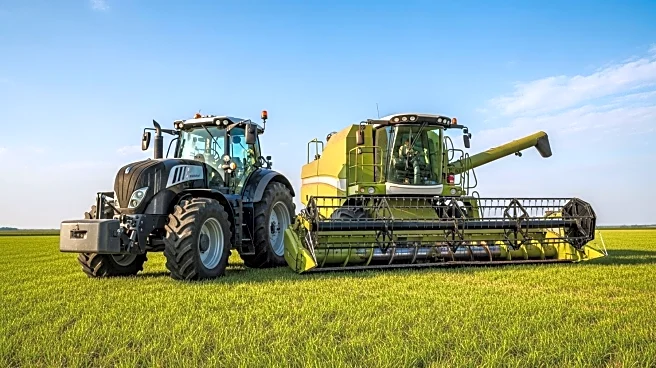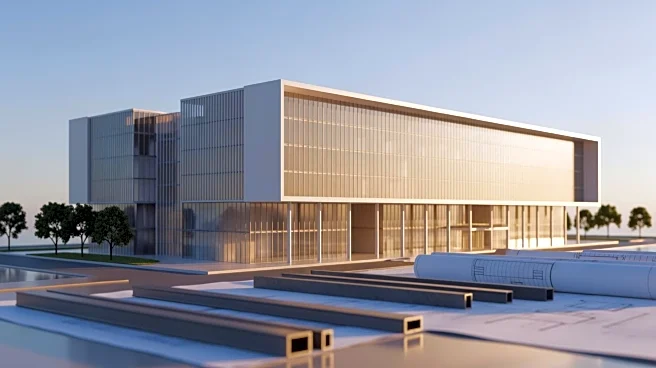What's Happening?
The 41st North American – EU Agriculture Conference, held in Como, Italy, has brought together over 250 representatives from the agricultural and agro-industrial sectors of the European Union, Canada, Mexico, and the United States. The conference, organized by FederUnacoma, focused on the need for technical and scientific collaboration between Europe and North America to address demographic and environmental challenges. FederUnacoma President Mariateresa Maschio emphasized the importance of open markets to foster high-quality agricultural models and counter competition from emerging economies. The conference also addressed the impact of tariffs on trade, particularly concerning agricultural machinery, which could hinder both European industry and the American agricultural system.
Why It's Important?
The conference highlights the critical role of international cooperation in agriculture, especially in the face of global challenges such as environmental sustainability and market competition. The discussions underscore the potential negative impact of protectionist trade policies on innovation and economic growth in the agricultural sector. By promoting open markets and collaboration, stakeholders aim to enhance the development of advanced agricultural technologies and ensure fair returns for farmers. This cooperation is vital for maintaining the competitiveness of both European and American agricultural industries, which are increasingly reliant on each other's technologies and products.
What's Next?
Future steps may involve further dialogue between North American and European stakeholders to address trade barriers and enhance cooperation in agricultural technology development. The conference's outcomes could lead to policy adjustments that facilitate greater market access and collaboration. Additionally, initiatives like the EU Data Act and interoperability standards such as ISOBUS, AgIN, and ADAPT may play a crucial role in advancing agricultural innovation and efficiency. Stakeholders will likely continue to advocate for policies that support open trade and technological collaboration to strengthen the agricultural sector globally.
Beyond the Headlines
The conference also sheds light on the broader implications of data management in agriculture. As digital technologies become integral to modern farming, issues of data access and interoperability are increasingly important. The EU Data Act's focus on fairness and benefits for farmers highlights the need for equitable data practices. The emphasis on standardization and connectivity through initiatives like ISOBUS and AgIN suggests a shift towards more integrated and efficient agricultural systems. These developments could lead to long-term improvements in agricultural productivity and sustainability.










